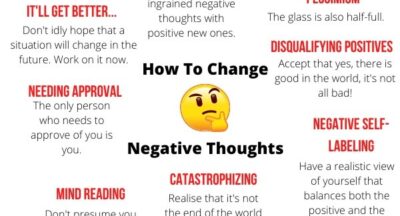
Knowing oneself: The importance in understanding your body’s physiological responses to anxiety: Differentiate between reality and make belief!
Understanding oneself, particularly in the context of anxiety and its physiological responses, is crucial for mental health and overall well-being. The distinction between reality and make-believe in the experience of anxiety is fundamental to managing and overcoming it. Let’s delve more into this topic and decide what is real or make-belief!.
1. Introduction to Self-Awareness and Anxiety
1.1. Self-Awareness
Self-awareness refers to the ability to recognize and understand one’s emotions, thoughts, and behaviors. It is a critical component of emotional intelligence and involves being in tune with your internal states and how you react to external stimuli. Self-awareness is the foundation for personal growth, as it enables individuals to identify areas of strength and areas that require development.
1.2. Anxiety and Its Role in Human Experience
Anxiety is a natural response to stress or perceived danger, triggering the body’s fight-or-flight response. While occasional anxiety is a normal part of life, chronic anxiety can be debilitating. Understanding anxiety involves recognizing its physiological manifestations and learning to differentiate between real threats and imagined ones.
2. Physiological Responses to Anxiety
2.1. The Fight-or-Flight Response
When the brain perceives a threat, it activates the autonomic nervous system, releasing stress hormones like adrenaline and cortisol. This triggers the fight-or-flight response, which includes:
- Increased heart rate: The heart pumps more blood to muscles, preparing the body for quick action.
- Rapid breathing: The lungs take in more oxygen to fuel muscles.
- Sweating: The body cools itself down to prevent overheating during exertion.
- Muscle tension: Muscles tighten to prepare for potential physical activity.
- Dilated pupils: Eyes widen to improve vision and focus on potential threats.
- Digestive changes: The body diverts energy from digestion to more critical functions, leading to symptoms like nausea or a “knot” in the stomach.
2.2. Chronic Anxiety and Its Effects
When anxiety becomes chronic, the constant activation of the fight-or-flight response can lead to long-term health issues, such as:
- Cardiovascular problems: Persistent high blood pressure and heart rate can strain the heart.
- Sleep disturbances: Anxiety often leads to insomnia or restless sleep, further exacerbating stress.
- Weakened immune system: Chronic stress suppresses immune function, making the body more susceptible to illness.
- Muscle pain and tension: Continuous muscle tension can cause pain, particularly in the neck, shoulders, and back.
- Gastrointestinal issues: Ongoing anxiety can lead to chronic digestive problems, such as irritable bowel syndrome (IBS).
3. Differentiating Between Reality and Make-Belief
3.1. Perception vs. Reality
Anxiety can distort perception, making imagined threats seem as real as actual dangers. This is due to the brain’s inability to distinguish between real and perceived threats when anxious. Understanding this distinction is crucial for managing anxiety effectively.
3.2. Cognitive Distortions
Cognitive distortions are irrational thought patterns that fuel anxiety. Some common distortions include:
- Catastrophizing: Expecting the worst possible outcome, even if it’s unlikely.
- Overgeneralization: Drawing broad conclusions from a single event (e.g., believing you always fail because of one failure).
- Mind Reading: Assuming you know what others are thinking, often imagining they think negatively about you.
- Fortune Telling: Predicting the future negatively, assuming things will go wrong.
- Black-and-White Thinking: Seeing things in extremes, without recognizing the gray areas in between.
3.3. Reality Testing
Reality testing is a cognitive-behavioral technique that helps individuals differentiate between real threats and imagined ones. It involves:
- Questioning the Evidence: Ask yourself, “What evidence do I have that this fear is true?” Often, the evidence will be scant or based on assumptions rather than facts.
- Considering Alternative Explanations: Look for other possible reasons for the situation. For example, if someone doesn’t reply to your message immediately, it doesn’t necessarily mean they’re upset with you—they might simply be busy.
- Evaluating the Likelihood: Assess the actual probability of your feared outcome occurring. Is it as likely as your anxiety suggests?
- Seeking Feedback: Sometimes, talking to someone you trust can help provide a more objective perspective on your fears.
4. The Importance of Knowing Your Body’s Responses
4.1. Early Detection and Intervention
Recognizing the early signs of anxiety is vital for managing it before it escalates. Each individual has unique physiological responses to anxiety, and being aware of these can help in early detection. For instance:
- Recognize Triggers: Identifying what triggers your anxiety can help you prepare for or avoid certain situations.
- Physical Cues: Notice your body’s cues—such as muscle tension, a racing heart, or shallow breathing—that signal rising anxiety.
4.2. Developing Personalized Coping Strategies
Understanding your specific responses allows you to tailor coping strategies that work best for you. Common techniques include:
- Deep Breathing: Slow, deep breaths can counteract the rapid breathing associated with anxiety, helping to calm the nervous system.
- Progressive Muscle Relaxation: This involves tensing and then relaxing each muscle group, reducing overall tension.
- Mindfulness and Meditation: These practices help you stay present, reducing the impact of worries about the past or future.
- Grounding Techniques: Grounding exercises, like focusing on the five senses, can anchor you in the present moment and reduce anxiety.
- Physical Exercise: Regular exercise helps manage stress hormones and releases endorphins, which improve mood.
5. The Mind-Body Connection
5.1. Understanding the Interaction Between Mind and Body
The mind and body are deeply interconnected. Emotional states can manifest physically, and physical states can influence emotions. Anxiety is a prime example of this interaction, where mental stress leads to physical symptoms, which in turn can exacerbate the mental experience.
5.2. Yoga and Meditation
Practices like yoga and meditation are particularly effective in strengthening the mind-body connection. They teach you to be more aware of your body’s signals and help in regulating the stress response.
5.3. Journaling
Keeping a journal where you document your thoughts, feelings, and physical responses to anxiety can be incredibly helpful. It allows you to track patterns, identify triggers, and see progress over time.
6. The Role of Therapy and Professional Support
6.1. Cognitive-Behavioral Therapy (CBT)
CBT is a widely used therapeutic approach for anxiety. It focuses on identifying and changing negative thought patterns and behaviors that contribute to anxiety. Through CBT, individuals learn to test the reality of their thoughts and develop healthier ways of thinking.
6.2. Biofeedback and Neurofeedback
These techniques involve using electronic monitoring devices to gain awareness of physiological functions, such as heart rate or brain wave patterns. By learning to control these responses, individuals can reduce anxiety.
6.3. Medication
In some cases, medication may be necessary to manage anxiety. Antidepressants, benzodiazepines, and beta-blockers are commonly prescribed. However, medication should be used in conjunction with therapy for the best results.
7. Practical Applications
7.1. Daily Mindfulness Practice
Incorporating mindfulness into your daily routine can significantly reduce anxiety. Start with a few minutes of focused breathing each morning or before bed.
7.2. Routine Physical Activity
Regular exercise is not only good for physical health but also crucial for mental well-being. Aim for at least 30 minutes of moderate exercise most days of the week.
7.3. Healthy Sleep Habits
Adequate sleep is essential for managing anxiety. Develop a consistent sleep routine, and create a restful environment to improve sleep quality.
What’s important to remember!
Understanding oneself, particularly how your body responds to anxiety, is a cornerstone of mental health. Differentiating between real and imagined threats allows you to manage anxiety more effectively. By becoming more self-aware, recognizing physiological cues, and employing appropriate coping strategies, you can reduce anxiety’s impact on your life. This knowledge empowers you to live more fully and confidently, knowing that you have the tools to handle whatever challenges arise.
The journey to knowing oneself and managing anxiety is ongoing. It requires patience, practice, and often professional support. However, the rewards—greater peace of mind, improved physical health, and a more fulfilling life—are well worth the effort. Embrace the process of self-discovery and trust in your ability to navigate the complexities of anxiety.

dr.dan
Related Posts
Powerful effects of journaling: How can it help you in your journey of healing, despite dealing with severe anxiety! Probable answers to challenging mental health condition!
Journaling has long been recognized as a therapeutic tool for managing...
Taking self-criticism to the extreme: Strategies on how to exit this loop of negative self-thinking
Most psychologists would agree with this statement: “We are our own worst...
Knowing oneself: The importance in understanding your body’s physiological responses to anxiety: Differentiate between reality and make belief!
Understanding oneself, particularly in the context of anxiety and its...
The dangers of FOMO (Fears Of Missing Out). How to not fall into that trap and find happiness in life.
If you all recall the events that transpired during the peak of the pandemic in...




